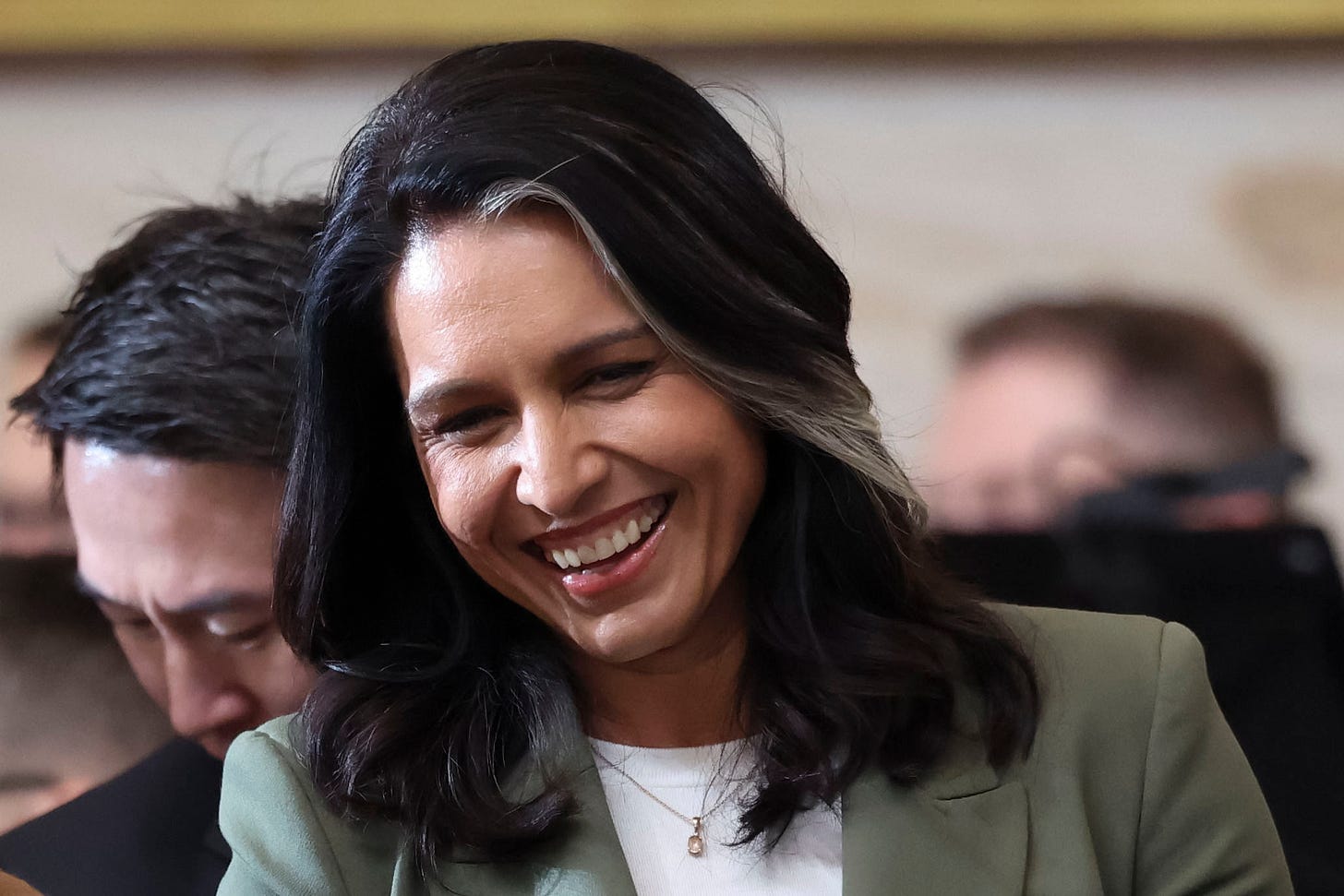Tulsi Gabbard’s History Is a Bigger Hurdle Than Trump Thought
Maybe a Trump nominee can be too extreme for the GOP.

SPEAKING TO A SMALL GROUP OF REPORTERS late last week, a Republican member of Congress offered a fairly optimistic assessment about the slate of controversial Donald Trump cabinet nominees.
Robert F. Kennedy Jr. at HHS? “He understands the politics of conservatism,” the member said, noting that the department would have a number of pro-life individuals at various sub-agencies, alleviating concerns about Kennedy’s pro-choice past.
Kash Patel to run the FBI? He “probably has a big misstep that is hanging over his head, but ultimately, he is in relatively good shape,” the member said, referring to Patel’s past penchant for compiling enemies’ lists and openly discussing legal vengeance.
Then the conversation turned to Tulsi Gabbard, Trump’s nominee to become director of national intelligence, and the member didn’t seem quite as bullish anymore.
“Tulsi still has a lot of questions to answer,” the member said, noting that they’d met with her. At issue for Republicans wasn’t just Gabbard’s past meeting with ex–Syrian dictator Bashar al-Assad. It was her advocacy for “a two-state solution, and how does that pair after October 7th, and what does that mean going forward.” The member also cited concerns over the question of “her governing philosophy . . . does it harmonize with President Trump’s foreign politics, or is [it] just who she is?”
That Gabbard’s governing philosophy remains a mystery to some Hill Republicans speaks to the continuing uncertainty of her confirmation. It’s been well over two months since Trump nominated her to the top intelligence post. In that time, the consensus has hardened among lawmakers and operatives that if any nomination is in danger of not making it through the Senate, it’s hers. Gabbard’s meetings with Republican senators have, reportedly, not gone universally well. On Wednesday evening, not one but two major D.C. publications—Axios and Semafor—published stories relaying Republican senators’ concerns over her fate. The Senate Intelligence Committee is slated to hold hearings on her nomination this coming Thursday. But no one is sure how those proceedings will go.
At the heart of it all is one fundamental question: Does Gabbard’s foreign policy outlook have a place inside the modern Republican party—even one so thoroughly remade by Trump?





